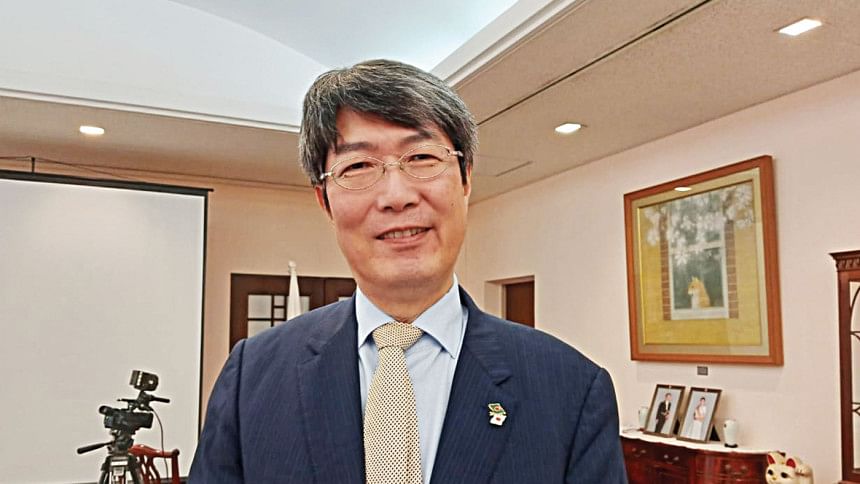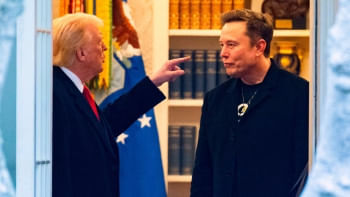Japan for reforms to combat corruption

Japan is eager to see reforms that eliminate corruption and improve governance, which are key factors for Japanese companies to invest in Bangladesh, said Japanese Ambassador to Bangladesh Iwama Kiminori.
"The interim government's top priority is eliminating corruption and reducing bureaucratic redundancy. This is a key element for Japanese companies to invest here," he told The Daily Star in a recent interview.
Kiminori is leaving Dhaka after a two-year tenure and will assume a new post as ambassador to a European country.
He informed that Japan has been closely observing the condition of law and order, peace and stability in Bangladesh since the political changeover in August.
"I believe the internal security situation is stabilising. While there have been some incidents, I believe the interim government will tackle the issue in a positive way," Kiminori said, stressing on improvement of law and order.
Over the past 50 years, Japan has been Bangladesh's largest bilateral donor, providing about $27 billion since 1972. Bangladesh exports products worth more than $1 billion to Japan annually while imports amounted to about $2 billion in 2022-23.
The island nation is also supporting several major development projects in Bangladesh, including the third terminal of Hazrat Shahjalal International Airport and the Matarbari Deep Sea Port. It is also providing technical and financial assistance for the Dhaka Metro Rail and the Araihazar Special Economic Zone in Narayanganj.
More than 350 Japanese companies operate in Bangladesh, and many more are eager to do so. The two countries are working to sign an Economic Partnership Agreement for bilateral trade after Bangladesh graduates from the least developed country club in 2026.
Kiminori said that a more favourable investment climate could attract many more Japanese companies.
"Bureaucracy, uncertainty, complicated procedures and corruption -- these are the issues for our companies. We are eager to see reforms by the interim government in these areas," he added.
Asked if the political transition in Bangladesh would impact Japan-Bangladesh relations, he replied: "Our stance is clear. We have consistently extended support, regardless of the government in power. We will continue to do so."
"We will see what is needed for the people of Bangladesh and development, like rural development and environment. We have been doing this, and we will continue to be a friend of Bangladesh," he said.
Regarding the progress of the deep-sea port project in Matarbari, Kiminori said that the power plant has already been established and the first phase of dredging is complete. Japan is planning to extend the project to a second phase, for which the government has already agreed.
Asked if Japanese-funded projects are facing any difficulties due to the political changeover, he said the third terminal of Dhaka airport, the metro rail and Matarbari projects are ongoing. Mass Rapid Transit (MRT) Line 6 is being utilised quite well and Japan is currently discussing MRT Lines 1 and 6 with Bangladesh.
"The interim government has shown positive interest in continuing other lines. While there may be some challenges, I see positive signs for the continuation of the existing MRT project. Sooner or later, we will need to complete them," he said.
"In that sense, we are ready to continue existing projects. For new projects, we need to discuss with the interim government," Kiminori added.
Japan was discussing an industrial value chain connecting Chattogram, Northeast India, Nepal and Bhutan.
When asked about this, Kiminori said: "We will continue the discussions. We have to identify the priorities of the new government. If they still consider it a priority, we will proceed accordingly.
"We would like to explore the possibility of connectivity in all directions, not just India and Bangladesh, but also Nepal and Bhutan. This is a key element to your development of the deep-sea port."

 For all latest news, follow The Daily Star's Google News channel.
For all latest news, follow The Daily Star's Google News channel. 



Comments